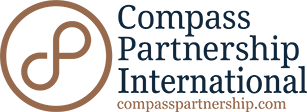Estimates suggest that 62% of employed Americans have worked at home during the first wave of the Covid crisis. The European Foundation for the Improvement of Living and Working Conditions reports that across the European Union, 40% of people have worked from home.

While some people thrive in solitude and have experienced increased productivity, the circumstances that have prompted this shift are far from ideal. Where some find new breath and inspiration to take their work and ambitions to the next level, others find the opposite – anxiety, loneliness, and powerlessness. Mind (the UK charity for Mental Health) reports that more than half of adults and over two thirds of young people said that their mental health has gotten worse during the period of lockdown restrictions (from early April to mid-May).
As most countries now find themselves in the grips of even stricter lockdowns and second waves, there is potential for enlightened management practices to bridge the gap and make the shift to remote working easier for all.
To understand the role that storytelling in particular plays in the workplace (remote or not), we need to pull ourselves back to one of the more fundamental ideas of what it means to be human. We are purpose built to share and empathise with each other. At the heart of our humanity, in our Neolithic brains, we seek to make sense of an overwhelming world through communication with others.
To satisfy even the most basic of needs, our ancestors needed a central narrative to survive and attain happiness and to provide social anchors. Though the nature of our own goals and the complexity of how we do this has changed, the way we do this has remained consistent.
How do we make sense of it all?
Stories are the answer. Communication takes place in communities, in families, with coworkers, with friends, with the people we love and with strangers. The interweaving of our stories transmits

information both simple and complex – from what we buy for our evening meal to how to approach a salary negotiation with our boss. It’s how we see the ‘gist’ of what is happening around us and determine how to act and react.
Consider your own office or organisation. Who determines the path of your working life? Whose stories do you listen to? Is it the corporate head office, your supervisor? Is it determined by the person who writes the cheques or the people who show up day after day? Coworkers? Is it you?
If you are a leader, do your employees feel that they can share their own stories without fear? Do they feel safe enough to do so? Do you feel your own voice is needed, heard at all? Who hears your stories? What impact can your narrative have on work and on those around you?
Why encourage storytelling in the workplace?
Travelling back again to the time of hunting and gathering, planning and foresight has always been important to survival. Those who told the best tales are remembered. Their experiences live on and their strategies contribute to survival and innovation. The person who found the best berries survived and shared their knowledge. Those who followed her advice and listened to her knowledge thrived.
Do we shake the tree or climb it? Do we pick the berries at the end of the season or the start? The fruit of our labours today may be different, but the human way we transfer information to others, so it is heard and felt is still vital.
Physiologically speaking, our vagus nerve (the brain’s emotional modulator/regulator of bodily functions) triggers dopamine receptors when we imagine and plan our future successes. The power of the positive is built into our most important bodily functions to ensure the continuation of the species.
In the working world, the most creative companies recognise that innovation is a community effort involving the juxtaposition of multiple streams of data and ideas. Those with diverse experiences, who communicate their passions and thoughts, may lie at the root of an idea that grows. Stories of connection, misalignment, contradiction, insight, and success are the stories that stick.
From an economic standpoint, a company benefits from happiness and a shared sense of purpose – reduced staff attrition, better recall of information, more cohesive and engaged teams and the ability to see and take on change with greater appreciation.
Those who tell the positive stories of our shared successes – both on a personal level and as an organisation – trigger the kind of primal happiness that our minds are designed for. At our core, we are hunters and gatherers still – of stories.
Making the Most of ‘Zooming’ and The Power of the Tangent

Unless you’re a robot, you will need ‘brain breaks’ during the working day. People tend to congregate in the lunchroom, by the copier or in a moment outdoors or in a café. Conversation ebbs and flows, and friendships rise and fall. Great ideas are not born in a flash of insight but in the juxtaposition of a thousand pieces of information.
Mark Twain noted (in a letter to Helen Keller):
“The kernel, the soul — let us go further and say the substance, the bulk, the actual and valuable material of all human utterances — is plagiarism. For substantially all ideas are second-hand (…)”
Much of the natural quality of this relationship building and the encouragement of the sort of ‘noble plagiarism’ that Twain aspires to is stripped away in online interactions. The spontaneity of a morning coffee is lost in scheduling and technology.
Rebuilding the potential for spontaneity in our online interactions seems like a huge contradiction – how can you try to be spontaneous?
Jim Coudal (Coudal and Partners design, producer of Field Notes books), writes,
“Our number one value isn’t in any of the skills we have. It’s that we’re essentially curious.”

In the context of our current global situation, there may not be a lot of happy stories or new information to share. Empathy and stories of personal perseverance are key in challenging times.
Go out on the proverbial limb! Go further. Be authentic and consider that growing the relationship between participants is an important part of your organisation’s future.
Ask a co-worker about their favourite recipe or how their dog is doing. Have an unconventional hobby? Tell me about your latest crochet project. Share the amusing thing that happened at the grocery store. Tell me how you are holding up.
At Compass, we are committed to helping companies develop their culture and creating climates where people can communicate with confidence at a human level. Go out there, be human.
When we make the effort to share the smaller stories of our lives, it opens the door for the bigger moments.

